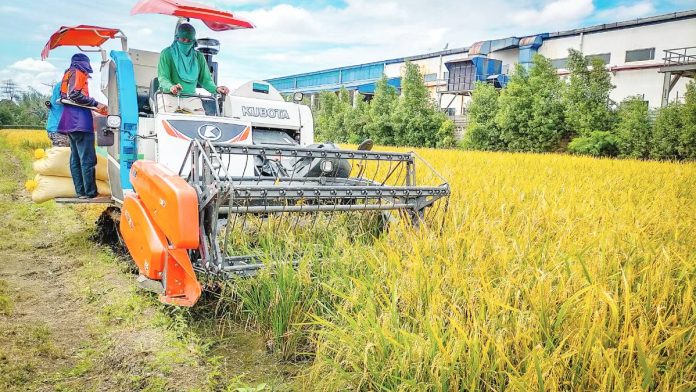
ILOILO – Farmers in Iloilo fear they could be on the brink of economic collapse as the farmgate price of palay plunges to as low as P10 to P12 per kilo, prompting 4th District Provincial Board member Rolando Distura to call for urgent government intervention to prevent further suffering among agricultural workers and to safeguard the province’s food security.
In a privilege speech during the 15th regular session of the Sangguniang Panlalawigan on October 7, Distura urged the provincial and national governments to respond to what he described as an “alarming and deepening crisis” gripping the farming sector.
He recounted his encounter with local farmers over the weekend, saying their struggles mirror the larger reality faced by many in Iloilo’s agricultural communities.
“I work tirelessly to nurture my crops, but when it comes time to sell, the prices I receive are a fraction of what I need to support my family,” a farmer told Distura — a sentiment, he said, shared by countless others burdened by rising production costs and unstable market conditions.
Distura said the low buying price of palay, compounded by high prices of seeds, fertilizers, and irrigation, has left farmers unable to break even. He warned that many are now contemplating abandoning their farms, a troubling sign for the province’s food supply and rural economy.
The Rice Tariffication Law (Republic Act No. 11203), meant to enhance competitiveness in the rice sector, has instead flooded the market with imported rice, further depressing local prices. Distura said the policy has “failed to empower” farmers and instead worsened their hardship.
He echoed the call of local millers and stakeholders to extend the 60-day suspension of rice importation ordered by President Ferdinand Marcos Jr. on September 1, warning that lifting it too soon would trigger another wave of cheap imports that could “crush the livelihood of local producers.”
“Consumers are starting to recognize the quality of local rice,” Distura said. “But if we don’t safeguard our farmers now, we risk losing the very foundations of our food security.”
To mitigate the crisis, Distura urged the Department of Agriculture (DA) Region 6, National Food Authority (NFA) Region 6, Fertilizer and Pesticide Authority (FPA), and Department of Trade and Industry (DTI) to revisit the procurement price of palay and implement stronger safety nets for local producers.
“We must put in place measures that genuinely support our local farmers—subsidies for inputs, price stabilization programs, stronger market linkages, and policies that protect them from exploitation and ensure their rightful share in the agricultural value chain,”
he stressed.
Farmers, meanwhile, lamented that government aid such as the P7,000 relief assistance barely eases their burden.
“We are not asking for pity; we seek respect, dignity, and fair compensation for our hard work,”
one farmer said.
Distura described the worsening morale in the countryside as “quiet surrender.”
“The pain etched into their faces is no longer just fatigue—it is quiet surrender,” he said. “Where will they go? Any of you, my dear colleagues—do you have an answer, a solution to this? Because to them, it feels like fighting a war they already know they will lose?”/PN





